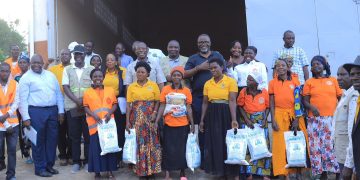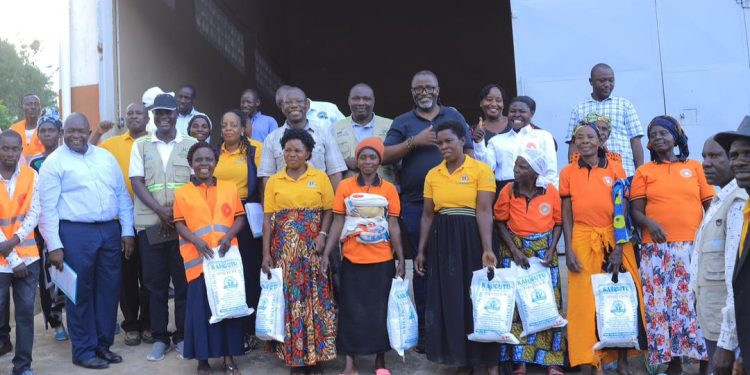The Local Economic Growth Support (LEGS) Project mission team has concluded its visit in Western Uganda, following successful engagements in Ntoroko and Bunyangabu, with the final stop in Kyejonjo District.
In Kyejonjo, the Project was described as a “complete package of the Parish Development Model (PDM),” explaining that it directly feeds into key PDM pillars like Production, Processing, Marketing, Infrastructure and Economic Services; Financial Inclusion; and Mindset Change.
Through the Microfinance Support Centre (MSC), the LEGS Project has disbursed over UGX 8 billion across the districts of Kabarole, Ntoroko, Bunyangabu, and Kyejonjo, providing critical financial support to community enterprises and boosting local investment.
Kyejonjo has also been ranked the best-performing district in Artificial Insemination, with over 500 inseminations with a 75 per cent success rate.
According to the District Agricultural Officer, Tuumbira Edson, the Voucher System introduced under the LEGS Project, where farmers contribute 50 per cent of the cost of agricultural inputs, has led to a sharp increase in fertiliser use, from 600 bags to over 1,000 bags per season.
In Bunyangabu, the district is benefiting from both Component A, which focuses on enhancing agricultural productivity, and Component B, which provides financial support and working capital to community enterprises.
The LEGS Project, in partnership with the Micro Finance Centre, has disbursed UGX 976,168,644 to over 3,200 community members in Bunyangabu, significantly boosting local enterprises and household incomes.
Dr David Siriri, the Country Director of MPA, encouraged farmers to take advantage of the Input Voucher Scheme under the LEGS Project, noting that the 50/50 cost-sharing arrangement in Agro-inputs has enabled 2,218 farmers to access quality agricultural inputs at affordable prices, thereby increasing productivity and incomes.
The Resident District Commissioner (RDC), Kamukama Nicholas, commended the progress achieved under the LEGS Project and emphasised the importance of a mindset shift among community members.
He pledged continued support in training and sensitising communities to fully utilise such development interventions to lift themselves out of poverty.
Asimwe Aisha, a member of the Rwimi United Development Association, said the project has transformed her life. Once a small-scale farmer, she now buys, mills, and sells rice, a business that sustains her family. At Kageera Market, traders are also reaping the benefits of improved infrastructure.











